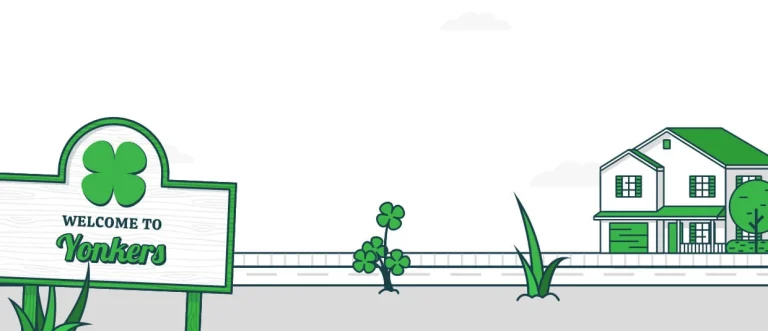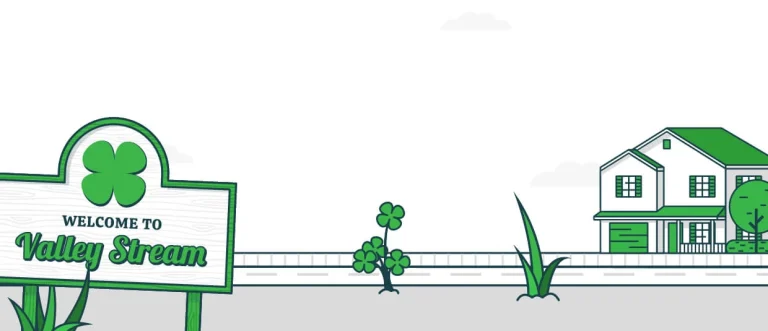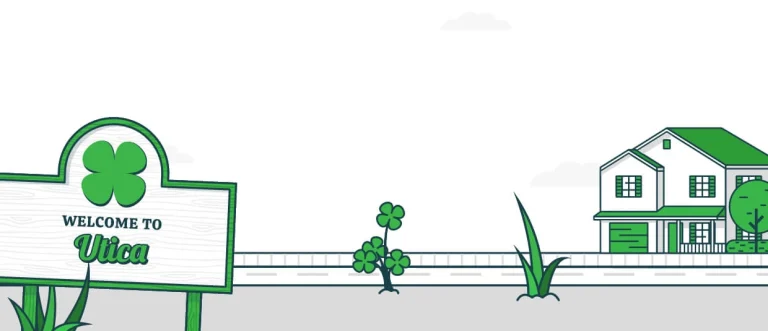Mortgage rates, down payments, the housing market, moving costs, furniture, renovations, and more. There’s so much to consider when buying a house that can complicate your decision.
With so much going on, one thing might get overlooked: homeowners insurance. It usually isn’t the first priority when looking for a house, but don’t let it be your last.
A home is a massive investment, and insurance is how you protect both yourself and – if you have one – your mortgage lender. Let’s look at when and why you need to get homeowners insurance when buying a house.
Do I Need to Buy Homeowners Insurance Before Closing?
Yes, your mortgage lender will require you to get homeowners insurance before you close on your house, so you should start shopping around for insurance as soon as you know which home you’re going to buy.
No law states you need homeowners insurance to buy a house. But, most people get mortgages to purchase a home, and mortgage lenders will make you get a home insurance policy before they lend to you. You will need proof of insurance at your closing.
You can start looking for homeowners insurance as soon as you sign the contract for your house. It usually takes at least a month from when you finalize your home purchase to when you actually close on it, so use this time wisely to shop for a policy.
Since there’s always quite a bit of buffer in the long home buying process, your move-in date won’t always be up to you even after closing comes and goes. So that’s why you need homeowners insurance to take effect on the day you take ownership instead of the day you move in.
As soon as you close on your home, it’s your responsibility. If a storm blows through on the closing day and rips off a section of your roof, you want to make sure you’re covered so you don’t end up paying for repairs out-of-pocket.
When to Get Homeowners Insurance When Buying a House
You should purchase a homeowners insurance policy before closing and ensure the policy is active on the day the house is transferred into your name. Many insurance companies allow you to purchase a policy that takes effect up to 45 days from the date of purchase.
If you’re buying your home with a loan, your lender will require proof of insurance in the form of an insurance binder, certificate of insurance, or declaration page before closing. This means you should have already found and purchased a homeowners insurance policy by the time your closing date rolls around.
Some lenders might require proof of insurance as early as two weeks before closing day. Not having insurance in time could delay closing.
Your mortgage lender may have some suggestions for insurers, but it’s always best to shop around on your own. A resource like an online quoting tool where you can compare several policies at once can help you greatly.
Before purchasing a policy, make sure it meets your lender’s requirements for scope and amount of coverage. If you’re unsure about your lender’s requirements, ask for clarification or even for your lender to review a potential insurance policy to ensure it’s satisfactory.

It’s Time to Switch Your Homeowners Insurance
We partner with the nation’s top homeowners insurance companies so you can get a custom policy at an affordable price.
Do You Need Homeowners Insurance If You Don’t Have a Mortgage?
No, if you’re paying for your new home with cash or paid off your mortgage, you aren’t required to get homeowners insurance. However, it’s still a good idea to make sure you’re covered. In the event of a fire, break-in, or natural disaster, you’ll be glad you have insurance to help pay for home repairs and replacements for lost or stolen property. You also don’t have to pay for homeowners insurance upfront at closing if you don’t have a lender.
When you do finally close, it’s common to have to pay at least some of your yearly home insurance premium upfront at the closing if you have a mortgage.
If your loan is financed through the Federal Housing Authority or if you put less than 20% down on your home, you’ll likely have an escrow account to keep your mortgage, property taxes, and more in one place. Many first-time buyers have escrow. You’ll pay some of your insurance premiums as part of your closing costs through this account.
The cost of homeowners insurance varies based on where you live, the size and age of your home, and other specific factors, but the average yearly premium in the US is around $1,000-$3,000. Be prepared to pay that amount upfront if your lender requires it. Even without escrow, your bank or lender will likely have you pay some, if not all, of your first year’s rate before you close.
But, if you don’t have a lender, you can split up your yearly premium and pay monthly. For an average rate of about $80-$250 per month, you could save yourself from financial ruin in the future.
Few people have enough money lying around to fully restore their property if something serious like a natural disaster or theft was to affect them. If you do happen to have surplus cash lying around, you probably don’t want to spend it on fixing something you could have prevented in the first place for much less with insurance.
With the right homeowners insurance policy, you would have thorough financial relief in the wake of disaster. Depending on how much coverage you have, your provider would pay all or most of the cost of rebuilding your home.
You’d also be reimbursed for your belongings to replace the ones that were lost, such as furniture and clothing. In addition, your carrier would help cover the cost of temporary housing, such as a hotel, while you wait for your home to be rebuilt.
Is There a Penalty for Going Without Homeowners Insurance?
Beyond the financial consequences of not having homeowners insurance, there’s no official penalty for going without homeowners insurance if you don’t have a mortgage. You aren’t legally required to keep insurance on your home.
However, you will be penalized if you have a mortgage and let your homeowners insurance lapse. Your provider will notify your lender of the lapse in coverage, and your lender will make you pay for force-placed insurance if you don’t get coverage yourself.
Force-placed insurance is often more expensive and provides less comprehensive coverage than your standard homeowners insurance policy. Going without homeowners insurance when you have a mortgage is impossible since you’ll always be handed force-placed insurance if you try.
Depending on your location, it’s also possible your mortgage lender requires you to get flood insurance or extra types of coverage in addition to a standard homeowners policy. A lender is looking to protect its investment in your property.
Mortgage companies will require homeowners in federally designated high-risk flood zones to have flood insurance. As with home insurance, a lender can also force-place flood insurance if the property owner doesn’t acquire coverage on their own. Penalties for going without homeowners insurance or flood insurance when required will be in the form of higher premiums.
Even when not required, it’s always recommended to have insurance to protect you from those things that are out of your control.
The editorial content on Clovered’s website is meant to be informational material and should not be considered legal advice.



